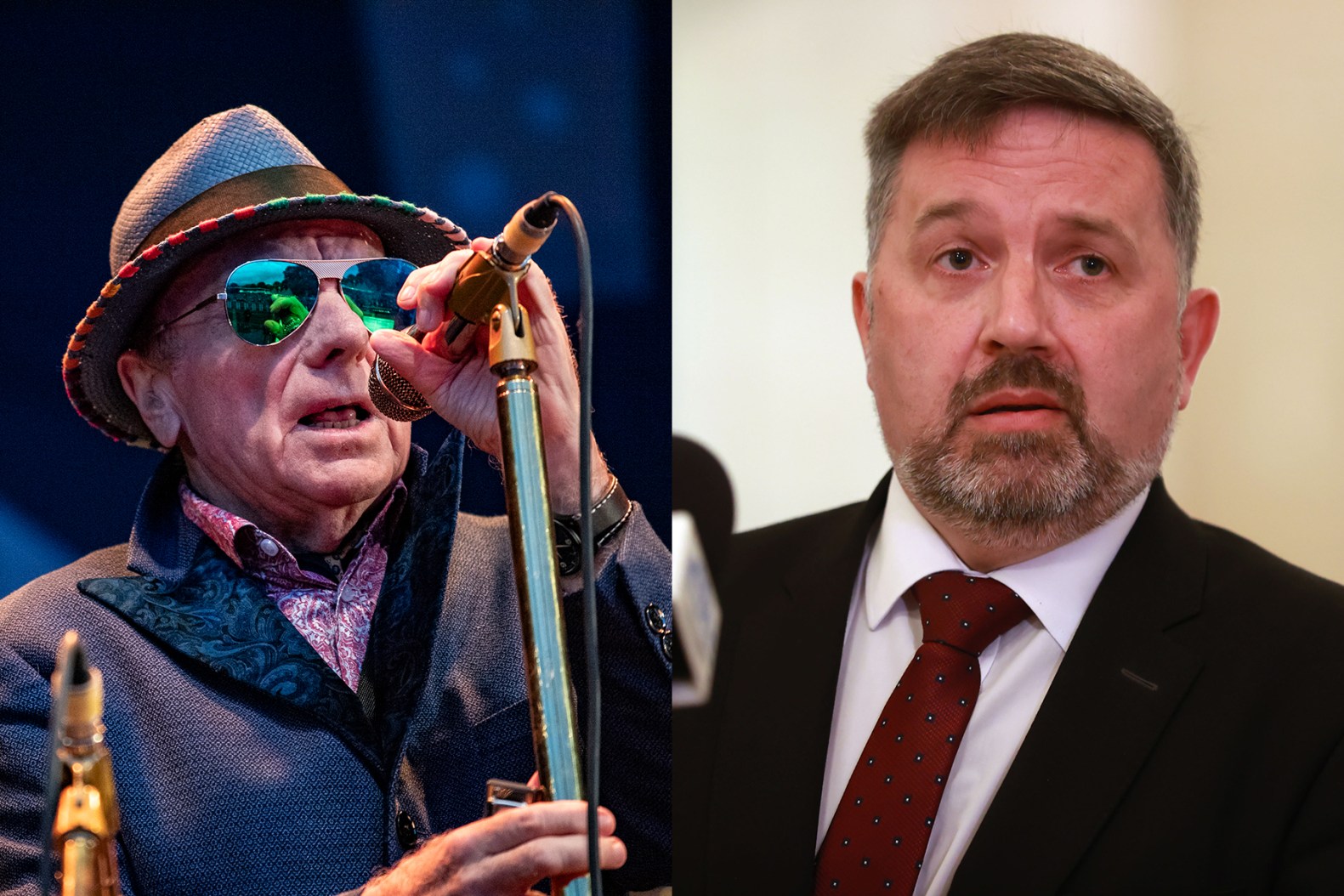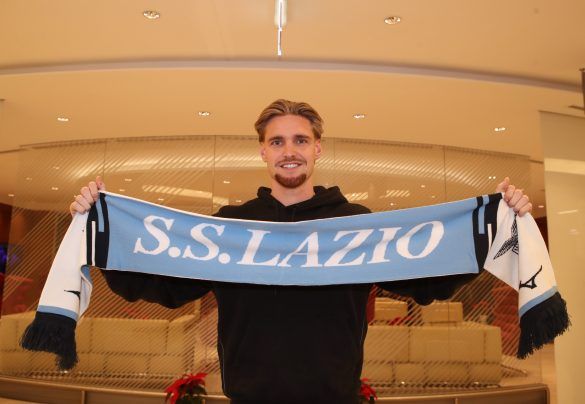BELFAST, NORTHERN IRELAND – A high-profile legal showdown between legendary musician Van Morrison and Northern Ireland’s former Health Minister Robin Swann has come to a dramatic conclusion as both parties reached a confidential settlement in a defamation lawsuit stemming from heated remarks made during the COVID-19 pandemic.
The case, which has garnered intense media attention both in the UK and internationally, centered on comments made by Morrison in 2021 regarding Northern Ireland’s COVID lockdown policies. At the heart of the dispute were Morrison’s sharp criticisms of Swann’s handling of public health measures and his public branding of Swann as “very dangerous.”
The dispute is now officially over, but it has ignited a broader conversation about the boundaries of free speech, the responsibilities of public figures, and the societal strains brought on by pandemic-era governance.
The Origins of the Dispute
The conflict began in the early months of 2021, when Van Morrison—known for his iconic contributions to rock and blues music—became increasingly vocal in his opposition to COVID-19 lockdown measures. Throughout 2020 and 2021, Morrison, 78, had released several anti-lockdown songs, some of which criticized government officials and what he described as the “pseudo-science” used to justify shutdowns of live music venues and public gatherings.
At a June 2021 event at Belfast’s Europa Hotel, Morrison shared the stage with fellow Northern Irish musician Ian Paisley Jr., and took the opportunity to lambast Swann. With cameras rolling and an audience of music fans present, Morrison referred to Swann as “a very dangerous man,” blaming him for the continued restrictions that had prevented live performances.
Morrison’s comments were not made in a vacuum. They came at a time when tensions in Northern Ireland were particularly high. The region was still navigating the complex landscape of COVID containment, and public trust in political leadership was a fragile commodity. Swann, who served as Health Minister from 2020 until 2022, had been a prominent face of the regional pandemic response.
Shortly after the Europa Hotel incident, Swann launched a defamation lawsuit against Morrison, stating that the comments had seriously harmed his reputation and subjected him to public ridicule, threats, and personal distress.
Legal Battle: Free Speech vs. Defamation
The lawsuit raised crucial legal questions that went beyond the individuals involved. Was Morrison expressing a legitimate political opinion, protected under the banner of free speech? Or had he crossed a line, using his public platform to unfairly defame a government official in a time of crisis?
Morrison and his legal team maintained that his comments were expressions of his strongly held beliefs about public policy and were part of a broader critique of how government actions had impacted the music industry. According to Morrison, lockdowns had “devastated” live performance opportunities, with little consideration given to artists and venues.
Swann, on the other hand, argued that Morrison’s comments were not just political disagreement but amounted to personal attacks that portrayed him as a menace to society. In legal filings, Swann emphasized the real-world consequences he faced, including threats to his personal safety and intense online harassment.
The case also touched on the unique cultural status of both figures. Van Morrison, a Belfast native, is one of the most internationally celebrated artists to come from Northern Ireland, while Swann, as a political leader, was entrusted with guiding the public through a once-in-a-century health emergency.
Settlement Announced
In April 2025, both parties announced that they had reached an out-of-court settlement. Details remain confidential, but it is understood that neither side will pursue the matter further, and all legal proceedings have been halted.
In a joint statement, Morrison and Swann acknowledged the divisiveness of the pandemic and the challenges faced during a time of national emergency. While the statement stopped short of an apology from Morrison, it did note that both men “recognize the strain placed on society by the pandemic and acknowledge the right to express differing views in a democratic society.”
Swann’s legal team stated that while they had full confidence in the merits of their case, the settlement was in the public interest and would help both parties “move forward.”
Reaction from the Public and the Arts Community
Public reaction to the settlement has been mixed. Some have praised Morrison for standing up for artistic freedom and the right to critique government policy. Others have criticized him for using his celebrity status to undermine public health efforts.
In the arts community, the issue has raised longstanding grievances about how the cultural sector was treated during lockdown. Many musicians and venue owners echoed Morrison’s frustrations, saying that live music had been disproportionately affected and left behind by policy decisions.
Conversely, health professionals and civil servants have expressed concern that high-profile figures spreading anti-lockdown sentiment may have eroded public compliance and trust in medical guidance.
Broader Implications
The Morrison-Swann case will likely be remembered not just for its legal drama, but for the broader societal questions it reflects. Can celebrities and artists wield their platforms to challenge public policy without crossing the line into defamation? Should political leaders be immune from sharp criticism during times of crisis?
Legal scholars have noted that the case could become a reference point for future defamation suits involving public figures. In particular, it demonstrates how volatile the intersection of fame, politics, and public health can be, especially when played out in the court of public opinion.
Moreover, the case highlights a larger cultural reckoning that many societies are still undergoing in the wake of the pandemic. The balance between freedom of expression and social responsibility remains an ongoing debate, especially in democracies that pride themselves on open discourse.
The Path Forward
Both Van Morrison and Robin Swann now appear to be moving on with their lives. Morrison continues to tour and release music, though he has largely stepped back from the most controversial elements of his pandemic-era activism. Swann, no longer serving as Health Minister, has remained active in political circles and has taken on several advisory roles in health policy and crisis management.
The case may be closed, but the issues it unearthed are far from settled.
In a world still grappling with the aftermath of COVID-19, the Morrison-Swann defamation saga serves as a cautionary tale—and a potent reminder of how fragile civil discourse can become in times of fear and uncertainty.











Leave a Reply